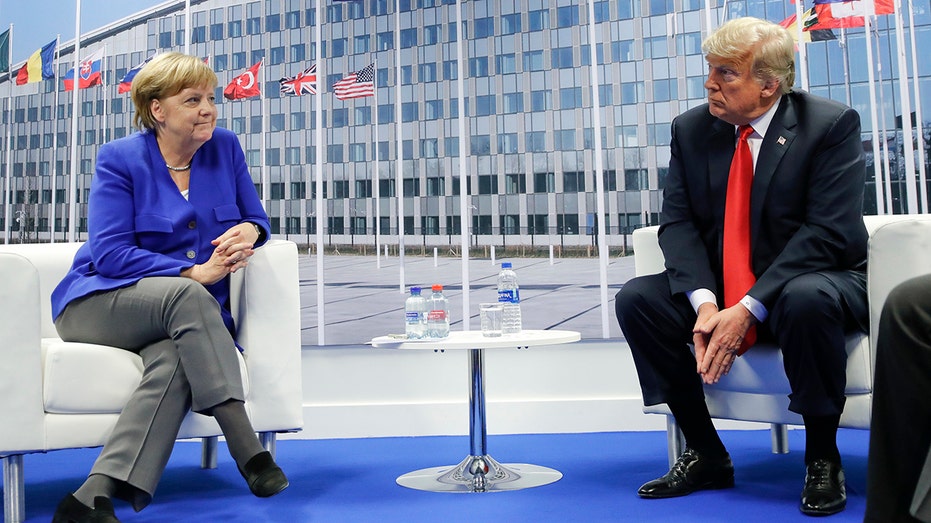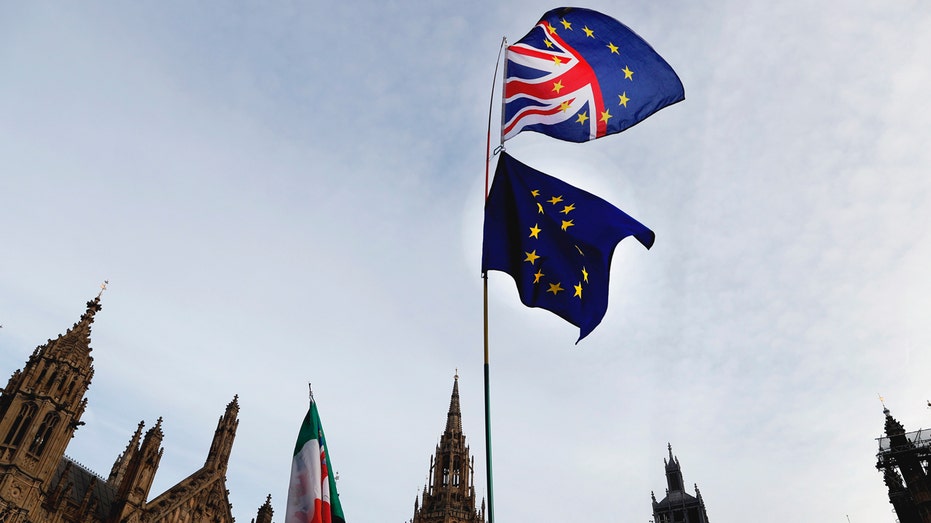These 5 countries are teetering on the brink of a recession
Fears of another global recession grew this week when a reliable economic indicator suggested the U.S. may be heading toward an economic slowdown.
But it’s not limited to the U.S. Five countries with some of the biggest economies in the world appear to be teetering on the brink of a recession.
“I think the trade war, it affects companies in the U.S., but it affects people outside — the countries outside the U.S. a lot more, especially smaller countries outside the U.S,” St. Louis Federal Reserve President James Bullard told FOX Business on Thursday.
While most economic data seem to show the U.S. economy remains relatively healthy (besides the spread between 2-year and 10-year Treasury yields inverting), the concern is that a global slowdown could tip over into the U.S.
“I think we’re in the middle of a global slowdown, and we’re just going to have to assess how this is going to affect the U.S. economy,” Bullard said.
GERMANY
On Wednesday, bad news from China and Germany — Beijing’s industrial output fell to a 17-year low, and the latter revealed its export-led economy shrunk 0.1 percent in the spring — pushed markets down globally. In part, the turbulence has been driven by the year-long trade war between the U.S. and China, which is impacting the global exchange of goods and hurting some countries’ exports.

President Donald Trump and German Chancellor Angela Merkel during their bilateral meeting, Wednesday, July 11, 2018 in Brussels, Belgium. (AP Photo/Pablo Martinez Monsivais)
ITALY
Meanwhile, growth has essentially stopped in Italy. At the end of 2018, strapped with debt and high unemployment, it slipped into recession, lagging behind the other members of the European Union. It has since recovered.

The Italian flag as seen from the Vittorio Emmanuele II monument in Rome.
UNITED KINGDOM
A third European country, and a backbone of the 28-member bloc, is also struggling economically. The United Kingdom is inching closer to a recession. In the second quarter, its economy contracted for the first time — a side-effect of the possibility of a “no-deal” Brexit in the upcoming months.

A Pro-European demonstrator raises flags to protest outside parliament in London, Friday, Jan. 11, 2019. (AP Photo/Frank Augstein) (AP)
JAPAN
Japan also faces the possibility of a slowdown, or recession, amid a nasty trade fight with South Korea.

Japan's Prime Minister Shinzo Abe smiles as Abe speaks to the media at the headquarters of his ruling Liberal Democratic Party in Tokyo, Sunday, July 21, 2019. (Yohei Kanazashi/Kyodo News via AP)
FRANCE
In March, the risk of a recession rose in Europe after dire economic data in France. At the time, France's private sector entered contraction territory as orders for both manufacturers and service firms lagged. Plus in the second quarter, the nation's growth unexpectedly slowed, expanding at just 0.2 percent (below analyst expectations of 0.3 percent), despite a slew of tax cuts passed by the government.

New French President Emmanuel Macron deliverS a speech during his inauguration at the Elysee Palace in Paris, Sunday, May 14, 2017. France has inaugurated new president, Emmanuel Macron, a 39-year-old independent centrist who was elected on May 7. (A
In April, the International Monetary Fund cut its global growth outlook to the lowest pace since the financial crisis began 12 years ago. “This is a delicate moment” for the global economy, the IMF’s chief economist warned during a press conference, citing precarious trade negotiations between the U.S. and China, as well as uncertainty surrounding Britain’s planned departure from the European Union, which is slated to happen in October.




















